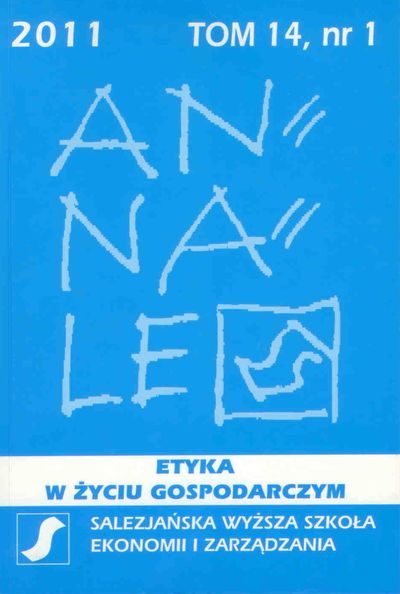Wspólnotowy charakter wolności na podstawie myśli antropologicznej Karola Wojtyły
DOI:
https://doi.org/10.18778/1899-2226.14.1.02Słowa kluczowe:
community, freedom, Karol WojtyłaAbstrakt
One of the main themes in the 20th century disagreements about man is the question of freedom, which seems to be the most complicated and, at the same time, intriguing phenomenon in the characteristics of the human subject. Karol Wojtyła suggests positioning freedom not only in the horizon of the irreducibility of the person as a subject, who autonomously decides about self and gives direction to own activities, but also in the area of interpersonal community. Being a person as a free subject appears as “in relation to” or “referring to” (something, somebody). We respond to values by making choices. The world of values is extremely rich and varied. It also encompasses other people, who are in relation to one another. Therefore, to be a person means more than just to be for oneself, in oneself and by oneself. To be a person is to be in relation to other people and to values. The community-oriented character of freedom is focused on in the philosophical writings by Karol Wojtyła, who on numerous occasions emphasizes the fact that a person may reach fulfilment through another human being, in a community with others, without losing anything of own subjectivity or individuality. Wojtyła wishes to deal with the problem of one of the fundamental conditions upon the fulfilment of which the community I-You may become a reality of subjects fulfilment. In order to achieve this purpose, Wojtyła undertakes analyses of participation, solidarity, community, whose proper specification in the perception of freedom aims at emphasizing the sense of man’s existence together with other human beings, on the one hand, and the purpose of man’s earthly journey, on the other hand.Bibliografia
Buber M., Ja i Ty. Wybór pism filozoficznych, Instytut Wydawniczy PAX, Warszawa 1992.
Google Scholar
Bukowski J., Zarys filozofii spotkania, Znak, Kraków 1987.
Google Scholar
Mounier E., Komunikacja [w:] Wprowadzenie do egzystencjalizmów, Wyd. Znak, Kraków 1960.
Google Scholar
Nagórny J., Solidarność i sprzeciw u podstaw uczestnictwa w życiu społecznym, „Roczniki Teologiczne” 1991–1992, t. XXXVIII–XXXIX, z. 3.
Google Scholar
Wojtyła K., Osoba: podmiot i wspólnota [w:] Osoba i czyn oraz inne studia antropologiczne, t. 4 serii „Człowiek i moralność”, Wyd. Towarzystwo Naukowe KUL, Lublin 2000.
Google Scholar
Wojtyła K., Rozważania o istocie człowieka, Wyd. WAM, Kraków 2003.
Google Scholar
Wojtyła K., Uczestnictwo czy alienacja? [w:] Osoba i czyn oraz inne studia antropologiczne, Wyd. KUL, III wydanie oparte na II (Kraków 1985), Lublin 2000.
Google Scholar
Pobrania
Opublikowane
Jak cytować
Numer
Dział
Licencja

Utwór dostępny jest na licencji Creative Commons Uznanie autorstwa – Użycie niekomercyjne – Bez utworów zależnych 4.0 Międzynarodowe.









